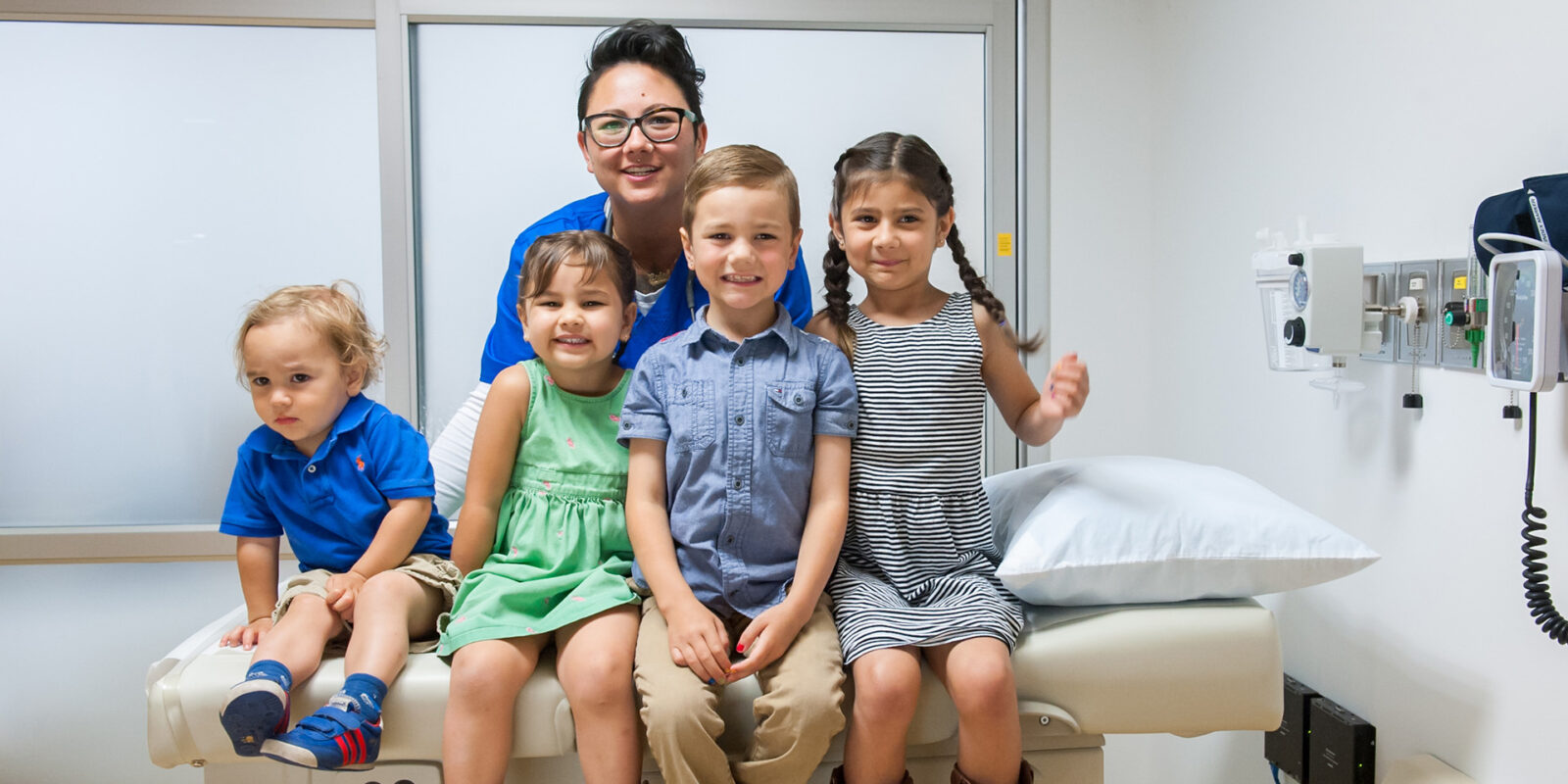Post-Graduate FNP Certificate Online

Prepare to Deliver Quality Family Primary Care
Online Coursework
20-32 Months*
41 Credit Hours
$925 Per Credit
Request More Information
Complete this form to receive information about coursework, admissions, tuition, and more.
Earn Your Post-Graduate Certificate and Become an FNP
Prepare to provide comprehensive patient-centered primary care to individuals across the lifespan, from infancy to the older adult. The FNP focuses on health promotion and disease prevention. After completing in-depth online courses and 765 practicum hours, you’ll be ready to sit for the family nurse practitioner certification exam through the American Nurses Credentialing Center or the American Academy of Nurse Practitioners.**
Graduate in as few as 20-32 months* ready to promote health, prevent disease, diagnose and manage common acute and chronic conditions for all ages.
Certificate Details
- Clinical placement support***
- Accredited by the Commission on Collegiate Nursing Education (CCNE)
- 100% online coursework with on-site immersion opportunities
Hands-On Post-Graduate Curriculum
17 Total Courses
765 Practicum Hours
Through the coursework and practicum hours in the post-graduate FNP certificate program at North Park, you’ll prepare to answer patients’ questions, create care plans, advocate for patients, and advance your healthcare career. Our curriculum readies you to create strategies for lifelong learning that will ensure you remain a trusted source of information and a strong leader in your practice. Graduate prepared to manage stable patients and to identify, diagnose, and refer, as necessary.
Complete your practicum hours during placement and in our state-of-the-art, on-campus simulation lab during the 3 day on-site.
Required Post-Graduate Certificate: Family Nurse Practitioner Courses
FNP Certificate Outcomes
- Integrate core scientific and ethical principles, advanced nursing knowledge, professional values, and clinical excellence in advanced nursing practice that reflects the Christian principles of the philosophy of the School of Nursing.
- Apply leadership skills in the design, coordination, delivery, and evaluation of safe and high-quality patient care.
- Plan quality improvement initiatives to improve health outcomes.
- Apply evidence-based approaches to guide advanced nursing practice.
- Use information systems and technology to support your practice.
- Advocate policies to improve the health of the public and the profession of nursing.
- Demonstrate effective communication with interprofessional partners to improve the health of individuals and populations.
- Plan, deliver, and evaluate effective, culturally responsive care to improve individual and population-based health outcomes with intentional emphasis on urban environments.
- Design strategies for life-long learning that incorporate professional nursing standards and accountability for practice.
Apply to the Post-Graduate Certificate Program
Application Deadline 8/10/2026
Start Date 9/07/2026
Apply to the post-graduate certificate program at North Park today. The application process is quick and easy, and you can save your progress as you work. A master’s degree is required to enroll in the post-graduate certificate program. Those without a master’s degree can explore our MSN – Family Nurse Practitioner program.
Admission Eligibility Requirements
- Completed NursingCAS application.
- Residency: Must be an Illinois resident
- Citizenship: U.S. Citizen or Permanent Resident
- All candidates must have an undergraduate minimum 3.0 GPA on a 4.0 scale.
- Candidates must hold a Master of Science in Nursing (MSN) from an accredited program (CCNE, ACEN, or NLNAC)
- Official transcripts from all previous schools required, via NursingCAS.
- Transcripts must show completion of the following prerequisite courses with a grade of “C” or higher: Nursing Research, Statistics, Health Assessment.
- Graduate nursing students may transfer a maximum of 9 semester hours of equivalent coursework from an NLN or CCNE accredited Master of Science in Nursing program to North Park, with approval. Transferred courses must have a grade of “B” or higher and be no longer than five years old. The credentials examiner, in consultation with the academic standing committee of the graduate nursing faculty, will ascertain the transferability of a course.
Additional Requirements
- Unencumbered RN license in the state of Illinois
- 300-word essay that communicates your personal and professional nursing goals and how North Park and a graduate education will help you achieve those goals.
- A professional resume
- Two recommendations: enter the names and email addresses of two (2) individuals in a health professional role who can evaluate your performance as a professional RN – at least one recommendation needs to be from a current or recent nursing supervisor. They will receive a system-generated email with the recommendation request. Recommendations must come from individuals who have current knowledge (last 5 years) of your skills and abilities as an RN. Recommendations are not accepted by family members and/or friends.
Applicants may be invited to an interview. Before enrolling in the program, accepted students must have an academic advising appointment to complete interagency practicum agreement, submit proof of liability insurance, complete all required immunizations, health screenings, drug screenings, and background checks for clinical clearance.
Reach out to your enrollment counselor with any questions you encounter throughout the process.
AdmissionsPaying for Your Post-Graduate Certificate at North Park
$925 Cost per Credit
41 Total Credits
There are many options for paying for your certificate at North Park, and our team is ready to help you explore them. We know that investing in further education is a big step, and we strive to offer valuable education opportunities at affordable tuition rates. As you navigate financing options, reach out to an enrollment counselor with any questions.
Graduate certificate programs and endorsement-only programs are not eligible to receive federal financial aid.
Tuition & AidRelated Programs
Disclaimers
*20 months to completion applies to APRN-certified & licensed students following a gap analysis of the official transcript
**Each state/jurisdiction has unique educational and prerequisite requirements that candidates must meet in order to obtain licensure or certification. For more information, please visit the National Council of State Boards of Nursing (NCSBN) website.
***Clinical education placements are a crucial part of your program, allowing you to apply advanced nursing skills in real-world settings. Placement is a shared responsibility among the University, faculty, and students, with all sites and preceptors requiring University approval.